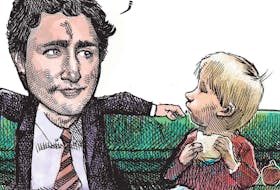Peter McKenna
Guest Opinion
U.S. President Donald Trump is evidently positioning himself for the 2020 presidential election. That explains, in part, why he is seriously considering tightening the U.S. economic embargo against Cuba.
He has his eye squarely on the Cuban-American vote in south Florida—a key battleground state (with 29 Electoral College votes) and typically a swing state—that he hopes to retain in the win column for 2020. And as recent polling in Florida suggests, support for the U.S. blockade has increased among the Cuban exile community (especially among the “historic exiles” who arrived during the 1959-1979 period).
According to a new Florida International University (FIU) poll, some 45 per cent support a continuation of the embargo, while 44 per cent do not. But that 44 per cent figure is down appreciably from the 54 per cent who opposed the U.S. sanctions in a 2016 FIU survey.
Now the Trump White House is moving rapidly toward allowing Cuban Americans to sue foreign companies that operate on land that was confiscated by the Cuban government after the 1959 revolution. Those anticipated lawsuits would apply, of course, to Canadian companies presently operating businesses on the island.
Under the anti-Cuba Helms-Burton Act of 1996, the Title III clause permits Americans to sue foreign businesses that have invested in so-called “confiscated properties” in Cuba. But since the law was passed by Congress, this provision has been suspended by a presidential waiver (which is signed every six months by a sitting U.S. president). In a disconcerting sign, the Trump administration indicated in mid-January that it would only waive Title III for 45 days.
In an official statement, the U.S. State Department noted: “We encourage any person doing business in Cuba to reconsider whether they are trafficking in confiscated property and abetting this dictatorship.”
If the presidential waiver process is terminated, American citizens will be able to take their cases directly to U.S. courts—including those against Canadian companies like Toronto-based Sherritt International. There are roughly 6,000 legal claims (with arguably 200,000 pending) involving those confiscated Cuban properties that have been certified in the U.S. (The collection of any damages, however, would only apply to those foreign companies that have commercial interests in the U.S.)
By undertaking such an action, Trump is making a huge mistake—and one that will only backfire in the short to medium term. It is obviously a critical step backward from the Barack Obama-driven U.S.-Cuba thaw of 2014-2016. More importantly, it will likely have significant implications for Canadian businesses and federal politicians.
Not surprisingly, the Cubans have not taken this news well. Cuba’s Foreign Ministry quickly issued the following statement: “Cuba rejects this threat in the most energetic, firm and categorical way.” It went on to add: “It regards it as a hostile act of extreme arrogance and irresponsibility, while condemning the disrespectful and slanderous language of the State Department’s public message.”
Tellingly, the Cuban government emphasized that such a move would “dangerously reinforce the blockade against Cuba, flagrantly violate International law, and directly attack the sovereignty and interests of third countries.” Where would that leave Canada then?
The invocation of Title III would undoubtedly create a serious fire storm in Ottawa and would immediately poison U.S.-Canada relations. The federal Liberal government would have to decide—particularly at a time when the recently negotiated NAFTA 2.0 is still pending—whether it wants to go to war with the Trump White House over the “extra-territorial” application of Title III provisions.
But with Florida senator Marco Rubio, a long-standing Cuba critic, whispering in Trump’s ear, the U.S. is once again heading toward choppy international waters. This is sure to upset America’s European friends and allies—to say nothing of the controversy that this will stoke in Ottawa and Mexico City.
Additionally, it will effectively transport U.S.-Cuba relations back to the rocky 1980s and 1990s. Clearly, the only thing that it will accomplish is to bolster the hardliners in Cuba who never subscribed to the view that normalizing relations with the U.S. would benefit the island.
In Latin America and the Caribbean, this will be viewed by most countries as politically and diplomatically counterproductive. It will only reinforce the sentiment in the region of ill-conceived U.S. disengagement from the Americas and create more political and economic space for both the Chinese and the Russians.
More to the point, the Cold War is long over. Indeed, the U.S. has gone down this path before and it has failed miserably. And there is no reason to think that this latest anti-Cuba salvo will be any different.
Peter McKenna is professor and chair of political science at the University of Prince Edward Island in Charlottetown.








